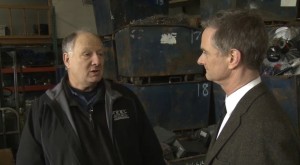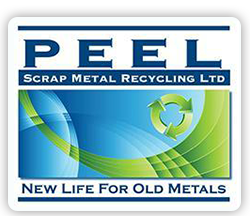When we started our business in 1990, the work was more physical and the regulatory environment was less intrusive. Today, we have more equipment to handle the physical load but we are surrounded by a sea of regulations involving such policy areas as human resources, occupational health and safety, the environment, taxation, and so on. While perhaps well intended for the most part, they are difficult to navigate and often questionable in their language, intent, and execution.
Clearly, we don’t think governments should ever be cast in the role of picking winners by either subsidizing some businesses and not others or arranging regulations to favor one group over another. More importantly perhaps, beyond the obvious compliance costs to firms, (including those that impose fixed costs, such as reporting procedures, regardless of size), the real issue with regulations is their impact on productivity. scrap yard in Mississauga
Improving productivity is really a long-term challenge and something that our governments in Canada have increasingly been attempting to address. We often hear about this in the press. In the U.K., the government’s Enterprise Strategy 2008, emphasized the role of business as a key driver of productivity growth in that country. The regulatory structure was identified as one of the principal enablers of productivity growth and the government established a framework that focused on ensuring that these policies would raise productivity by improving 5 identified drivers; competition, investment, innovation, enterprise, and skills.
Weighing In On Regulations
At the end of the day, regulations can have either a positive or a negative impact on productivity. On the positive side, they can protect intellectual property and reduce barriers and uncertainty to support competition, investment, and innovation. On the negative side, they can divert resources from productive uses, raise barriers to entry and produce disincentives to investment and innovation.
In our neck of the woods, the concept of sustainable development has increasingly been popular with policymakers and the public at large over the past number of years. We certainly agree with this concept. However, if we really intend to keep metals, plastic, paper, and other recyclables out of landfill then we need to give entrepreneurs the regulatory incentive to mine the urban landscape and to find innovative and responsible ways to return these types of materials as feedstock for the manufacturing processes which created them.
End-of-Life Electronics Recycling
We have recently added end-of-life electronics to the already substantial list of items we recycle. This is good to note for those of you in the Oakville and Mississauga areas especially.
Next time you buy a television set or other type of appliance or gear that triggers an ‘eco fee’ with the new product and a ‘disposal fee for your old product, you can now recoup some of those costs by recycling those end-of-life electronics and appliances with us. This means your electronic scrap will not go to waste and you can be sure that it will be handled in a responsible and sustainable way.
 Peel Scrap Metal Recycling In The News On Wednesday, March 14th, 2012, BNN (CTV’s Business News Network) aired our interview with Andrew Bell. For those of you who are not familiar with Andrew, he is an Anchor-Reporter and can be seen on Business Day, Commodities, and The Pitch. He is also an extremely interesting, knowledgeable, and gracious individual and the author of Mutual Funds for Canadians for Dummies.
Peel Scrap Metal Recycling In The News On Wednesday, March 14th, 2012, BNN (CTV’s Business News Network) aired our interview with Andrew Bell. For those of you who are not familiar with Andrew, he is an Anchor-Reporter and can be seen on Business Day, Commodities, and The Pitch. He is also an extremely interesting, knowledgeable, and gracious individual and the author of Mutual Funds for Canadians for Dummies.
The interview was filmed at two of our locations in Mississauga and can be found at. http://watch.bnn.ca/commodities/march-2012/commodities-march-14-2012/#clip637701 We will shortly be adding the link in our website. If you would like to comment on this or any other topic, we would like to hear from you. Please e-mail us at info@peelscrapmetalrecycling.com
